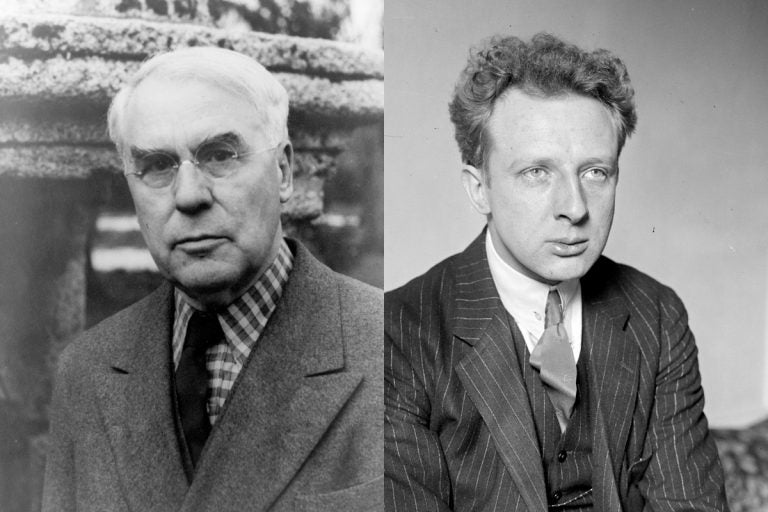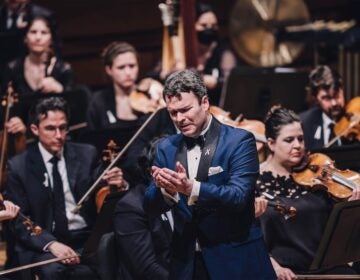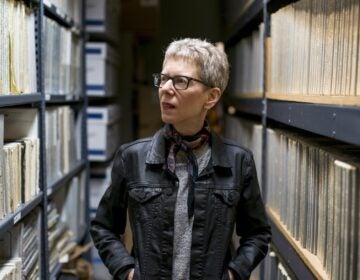Forever ‘frenemies’: Barnes and Stokowksi
The Philadelphia Orchestra is bringing together strange bedfellows.

Philadelphia Orchestra’s two-week Barnes/Stokowski Festival explores the contentious relationship between art collector Albert Barnes (left) and conductor Leopold Stokowski (right). (Library of Congress)
The Philadelphia Orchestra is bringing together strange bedfellows – its own legendary conductor Leopold Stokowski and the art visionary Albert Barnes.
A series of concerts and events shows how the two giants of the arts in Philadelphia crossed paths — and then crossed swords.
In 1912, Stokowski and Barnes both embarked on their major artistic projects. The former began as the head of the Philadelphia Orchestra, and the latter started importing modern art from France.
They shared a similar vision of bringing contemporary art to the masses and lifting the general artistic taste of the city. Letters archived at the Barnes Foundation show their lively correspondence.
Stokowski spoke at the ribbon cutting of the original Barnes Foundation site in 1922. The museum was famous for its eccentric arrangements of visual art.
“The curation of the art was very novel and is still seen today as an unusual way of arranging painting,” said Jeremy Rothman, the orchestra’s vice president of artistic planning. “In the same way that people still talk about Stokowski’s orchestrations of Bach, for example. He takes organ works and expands them into large-scale orchestras, which people still debate.”
Although they had comparable ambitions for their respective fields of interest, Stokowski and Barnes could not see eye-to-eye. The letters suggest that, in 1920, Barnes threw Stokowski out of his house over some kind of argument about art.
They came to a truce later, agreeing to disagree. “Your fundamental ideas of art are so different from mine that a discussion would lead to no worthwhile result,” wrote Stokowski.
Barnes, with his penchant for French, wrote to Stokowski, “Et je vous serre bien la main – toujours,” roughly translating to “I will always shake your hand.”
The truce did not last. For more than 20 years, the two men butted heads. Barnes was verbose, Stokowski more taciturn.
“I think of them as Greek gods – they were very flawed,” said playwright Didi Balle. “They had similar ambitions and visions, but the way [those visions] were executed was very different. They also had extraordinary egos. If you think of it, they’re really kings of two different kingdoms.”
Balle wrote a pair of Symphonic Plays for the Philadelphia Orchestra, to be performed during two programs as part of the Stokowski-Barnes Festival. Actors will perform original dialogue in the character of the two titans, accompanied by the orchestra.
In the spirit of the two men, who always wanted to bring art on the cutting edge to a city that could sometimes be stuck in its ways, the orchestra is presenting two programs of contemporary music – all of them premieres – performed by chamber ensembles, featuring the new music quartets JACK and SoundLAB.
The chamber concerts are free: Tuesday at the American Philosophical Society in Old City, and Thursday at the Philadelphia Episcopal Cathedral in West Philadelphia.
WHYY is your source for fact-based, in-depth journalism and information. As a nonprofit organization, we rely on financial support from readers like you. Please give today.





